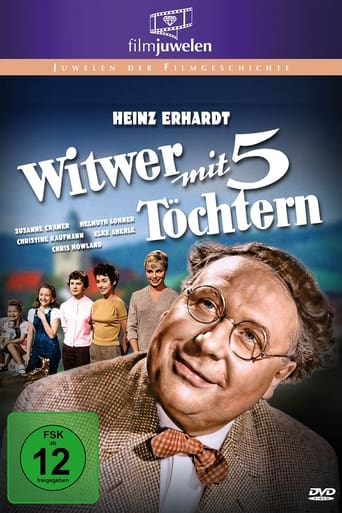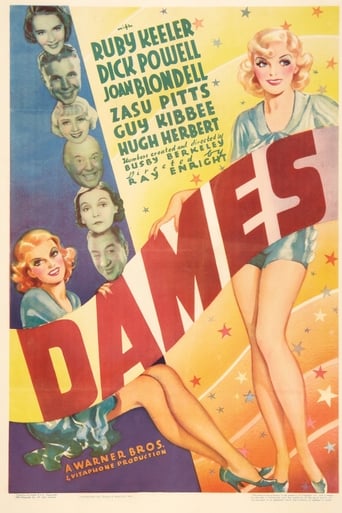


Dames
A reformer's daughter wins the lead role in a scandalous Broadway show.
-
- Cast:
- Joan Blondell , Dick Powell , Ruby Keeler , Zasu Pitts , Guy Kibbee , Hugh Herbert , Arthur Vinton


Similar titles
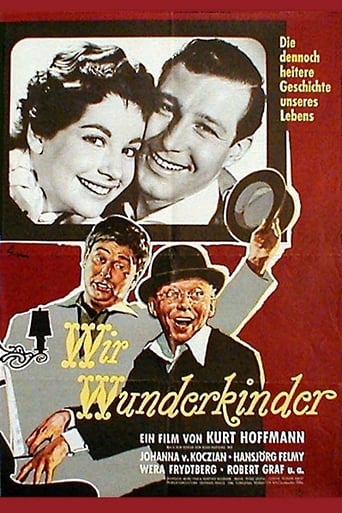
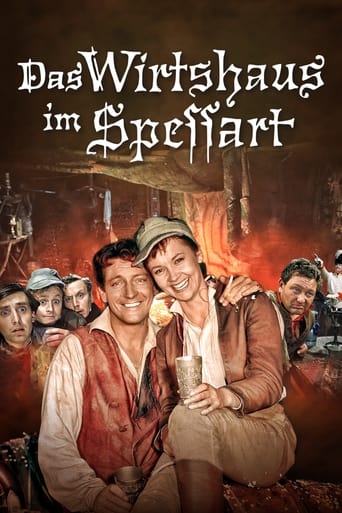
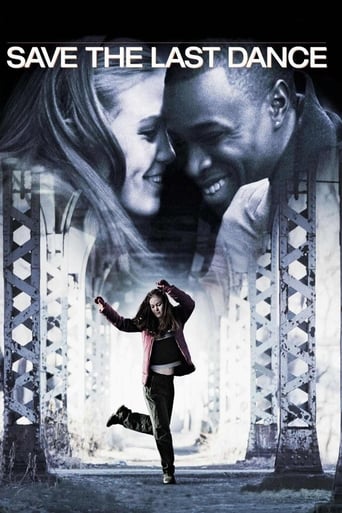
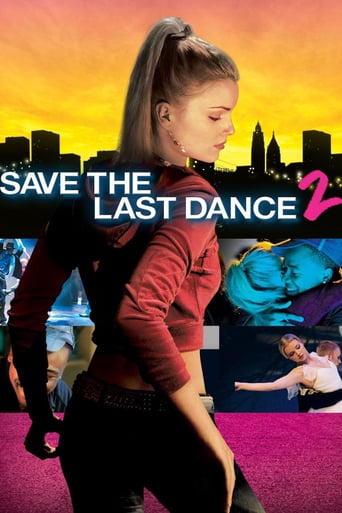
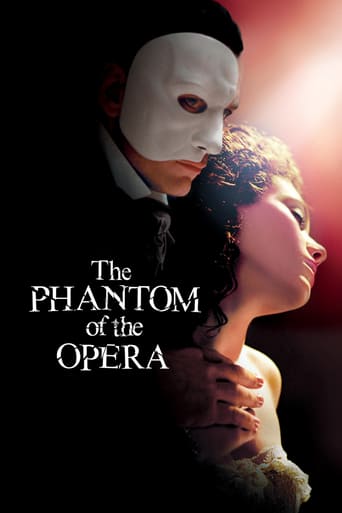
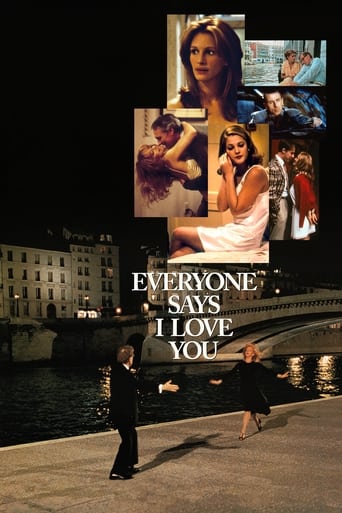
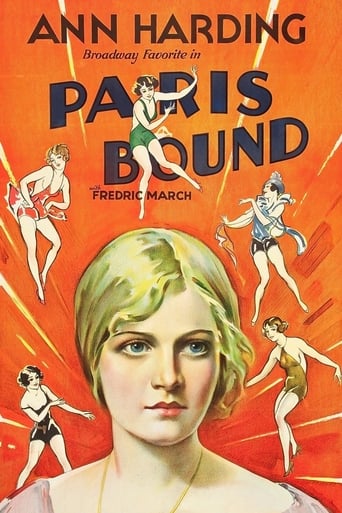
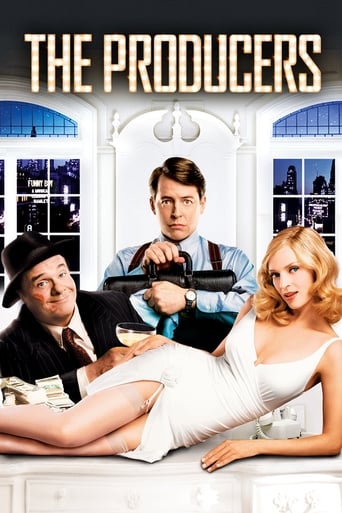
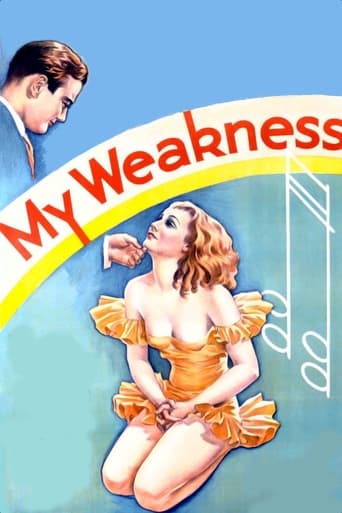
Reviews
The acting in this movie is really good.
The story-telling is good with flashbacks.The film is both funny and heartbreaking. You smile in a scene and get a soulcrushing revelation in the next.
It's a movie as timely as it is provocative and amazingly, for much of its running time, it is weirdly funny.
True to its essence, the characters remain on the same line and manage to entertain the viewer, each highlighting their own distinctive qualities or touches.
Songs by Harry Warren (music) and Al Dubin (lyrics): "Dames" (Powell and chorus; danced by Keeler), "I Only Have Eyes For You" (Powell; reprised by Powell, Keeler and chorus), "Shuffle Off To Buffalo" (chorus), "The Girl At the Ironing Board" (Blondell). Song by Allie Wrubel (music) and Mort Dixon (lyrics): "Try To See It My Way" (Powell, reprised Blondell and chorus). Song by Sammy Fain and Irving Kahal: "When You Were a Smile On Your Mother's Lips" (Powell). Copyright 3 October 1934 by Warner Brothers Pictures, Inc. New York opening at the Strand: 15 August 1934. U.S. release: 1 September 1934. U.K. release: 23 February 1935. Australian release: 8 May 1935. 10 reels. 91 minutes. SYNOPSIS: An ambitious songwriter (Dick Powell) has penned a whole Broadway show. He lacks only one thing-a backer!COMMENT: Following the landslide success of 42nd Street, Warner Bros spent many a mighty dollar in their efforts to surpass that musical breakthrough. Thanks to Busby Berkeley's continued inventiveness, plus five extra-tuneful songs, Dames certainly tops even the great entertainment offered by 42nd. My favorite number in this movie is "I Only Have Eyes For You". It's not only one of the loveliest melodies Harry Warren ever composed but it's so dazzlingly staged by Berkeley with so many Ruby Keeler look-alikes cavorting around the set, it's hard to tell where the real Ruby stands. Oddly, Warren himself did not particularly like the number. "Buzz never knows when to quit," he complained. "On screen they go through the song about twenty-five times. I got sick of hearing it over and over again. At the end, I began to hate it!" When the screen is not filled by Busby's choreographic spectacles, the ingenious variation on the basically familiar story contrived by Robert Lord and Delmer Daves, and abetted on screen by such expert clowns as Hugh Herbert and Guy Kibbee, delivers plenty of laughs too. As for Blondell, Powell and Keeler, they're just wonderful!
Some people talk about the big 3; "42nd st ", "Footlight parade ", and "Gold diggers 33", which I agree are great. But why are they leaving out "Dames" which has Ruby Keeler's very best number "I only have eyes for you"? I also love "Gold diggers 35" with the very nice Gloria Stewart. "The great 5" is what I call these films, not "the great 3".Busby did release a few more after that which weren't quite as good as the great 5, "Gold diggers 37", "Gold diggers Paris", "Varsity show", and "Hollywood hotel ". Those films came out between 1936 and 1939 which it seems was a slump in his career. Then between 1939 and 1943, he shined again with the wonderful Judy Garland backyard musicals. At least until 1943 during the filming of "Girl crazy" when he was pulled off the set for being abusive to Judy while filming the song "I got rhythm" (half that info I got from 2002's docufilm "Judy Garland, me and my shadows", and half I got from reading real life stories and articles on Busby). But "Girl crazy" was still a great film. "Dames" starts with Guy Kibby visiting an extremely wealthy relative (who has more security guards and security doors than any I've ever seen ) Huge Hubert tells Guy that he may be inheriting a fortune depending on whether he keeps his morals or else he'll "cut him off like a ripe banana". He points to picture of Dick Powell (James"bad fruit"Higgins) as an example of someone from the family tree who he's already cut off because he went into show business. I'm not sure how show business really makes someone immoral, but I know some people had a tighter system back then of what was or wasn't moral. Dick is romantically involved with the beautiful Ruby Keeler, who he believes is Dick's 13th cousin. Zazu Pitts is Huge's wife who I remember from "Meet the baron ". Zazu was good with her slightly surprised yet quiet "oh my" style of talk (sort of Olive Ole like) more so in "Meet the baron " than here, she only says "oh my" once here. I like Joan Blondell here too, first in the comical scene where she shows up in Guy's bed on the train knowing it's Guy's and throwing a little blackmail at him. It then leads to a "that sound is the water in the pipes" scene while Blondell is hiding in Hugh's house in Guy's bedroom threatening to scream if Guy won't go along with her. Ahh, more sweet blackmail. More great scenes in this film during rehearsals and numerous other great moments. Also very funny when Hugh couldn't get rid of his hiccups and got everyone all frantic trying to find him the very hard to get Golden Elexor (53% alcohol). When they finally get some to him, he drinks some, looks all happy and relieved saying "ahhh, that's the stuff", then hiccups again. Hilarious. The whole family searches everywhere making a lot of phone calls to find that bottle of Elexor (53% alcohol), but later on during their attendance at the show, they've managed to maintain numerous Elexor bottles for each of them, including a bottle of ultra strength Elexor (73% alcohol).Musicals in the second half of the 20th century usually didn't have the same touch anymore, not including the 1950s and 1960s that still had some great ones such as "Sound of music". One example of more recent ones not quite being the same anymore was "Evita" in the 90s. It was singing that whole film with no talking parts and I didn't care for that quite too much. Musicals in the 1930s through 1960s usually had a good story with a number of scenes with no music and pure dialogue, then they'd wow us with the wonderful musical scenes in the last third, or last quarter. "Dames" and all of Busby's films had that pattern too. During the musical section of "Dames", one of the four songs didn't have the same magic and intriguing elaborateness that made it look like it wasn't possible to shoot it on a stage, and very clearly showed it as a stage number. That was "Try to see it my way". It was still good though. I loved Blondell in "Girl with an ironing board", and the dancing and singing clothes on the lines. That whole number had such an old fashioned innocent sweetness. And I also liked the moment when Blondell does a Mae West "come up and see me sometime", then the swan pattern the girls made by the clothes line, then the birds chirping and the harp playing, etc. The third song was great too showing all the girls getting ready while singing ; getting out of bed, in the tubs (that's right, girls in bathtubs with water, soap and bubbles on the stage ), and powdering their noses. And then the fabulous Busby kaleidoscope patterns which were some of his most amazing ever. I can hardly imagine how much rehearsing and skills it must've taken to get those particular movements and patterns so well on the mark like that. Then the very best of all was wonderful Ruby Keeler and Powell in "Only got eyes for you ". Throughout this number Ruby was most amazing and beautiful here; her sweet voice and smile walking with Powell, the sweet way she closed her eyes still smiling while putting her head on Powell's shoulders on the subway while he dreamed of about 15- 20 pictures of Ruby's face dancing around in black background, then the wonderful part with 15- 20 Ruby Keelers in very nice white dresses all dancing around so beautifully with the beautiful singing at that point in the song and then after that some more neat kaleidoscope work by Busby. Ruby Keeler was so wonderful throughout that number. I love her. This film's fantastic.
This was the fifth musical in two years since Warners revitalized the genre with 42nd Street and the fact is that whatever your preference the chances are this will probably satisfy it; for example if you're a fan of songwriters then you have not only the highly successful team of Harry Warren and Al Dubin but also an arguably less successful team in Sammy Fain and Irving Kahal (although we shouldn't forget that they came up with two smash hits, I'll Be Seeing You and I Can Dream, Can't I) in one show (Right This Way, 1938) and for good measure old timer Mort Dixon weighs in with a number. If, on the other hand you're an aficionado of character actors look no further because here you'll find F. Hugh Herbert, Guy Kibbee and Zazu Pitts strutting their stuff and as if that weren't enough you have the great Joan Blondell wisecracking her way through the script and unleashing a production number to boot. On the other hand you will have to endure the Singing Sweat Gland, Dick Powell, to say nothing of the clod-hopping Ruby Keeler. Ah well, you win some, you lose some.
This film defines "factory film-making" -- total paint by the numbers approach to musical film, with contempt for the intelligence of its audience. Let's wrack up the film's most obvious faults -- only one memorable song ("I Only Have Eyes for You") which unfortunately is played twice for a total of about 15 minutes so that you want to tear your hair out. Only one decent (I mean half-way decent) singer in Dick Powell. A poor script that doesn't allow the funny supporting players like Guy Kibbe to rise to the occasion.Everything about this movie was seemingly pulled together in great haste, so that various elements of the story that might have been fun just feel obligatory. Why does Ruby Keeler get angry at Dick Powell (I won't even bother to use the names of their characters.... Powell is "Jimmy", of course), and then decide to do the show anyway? Don't look to the film for any answers. It just seems to happen because that's what the audience expects to see in these films. I guess the formula was so set by this point that they felt they could use shorthand to express even what are supposedly the primary emotional moments in the story."Eyes for You" shows up so early, and so intimate, that it was easy for me to predict it would be used later for the extravaganza. In fact basically the structure of this movie is the first 2/3rds are a half-baked situational comedy about Guy Kibbe trying to inherit $10 million, and then the last 1/3rd is just a series of increasingly mind numbing musical sequences that have no relationship to the story or characters or to any idea. Geometrical shapes are used in stunning arrangements by Busby Berkeley -- my problem is that there is never any concept behind it. It's kind of neat to look at, but totally pointless. And the "Eyes" sequence with hundreds of images of Ruby Keeler is actually disturbing. I don't know how big of a fan you'd have to be of Ruby Keeler to watch that without feeling an urge to vomit or to run screaming out of the theater. Disembodied Ruby Keeler heads seem to lunge and lurch all about and then form their own geometric shapes, and at the end as it's supposed to be Powell's dream we should worry about his mental state. But of course, as usual there's also no attempt to show anything that could actually happen on a stage, despite the fact that the entire running length of the film prior to these sequences has been about Powell putting on a Broadway show everything we see is camera tricks that could never work on stage.In the film's most embarrassing skit, Powell's character plays some kind of showbiz bigwig who refuses to see George White and George Gershwin but readily allows a group of "dames" to enter his office and practically attack him. "Who knows the names of those composers?" he tells us, "Admit it, you pay to see the dames." This kind of cynical joke reveals everything about the mindset of the producers of this film, and explains why it's such a piece of garbage now compared to the better musicals of the 30s and 40s. First of all, the people behind this film would have been better off to hire somebody like Gershwin who could have provided some memorable music. Instead it's full of pointless sequences with hundreds of plump girls going through boring military routines in geometric shapes. Geez Mr. Powell, I sure do like that better than those lame musicals that actually have, you know, good music and decent stories.Lame, insulting to the intelligence, insulting to the taste, it's no wonder the steam ran out of these types of musical shows long before the big war broke up the party for good.

